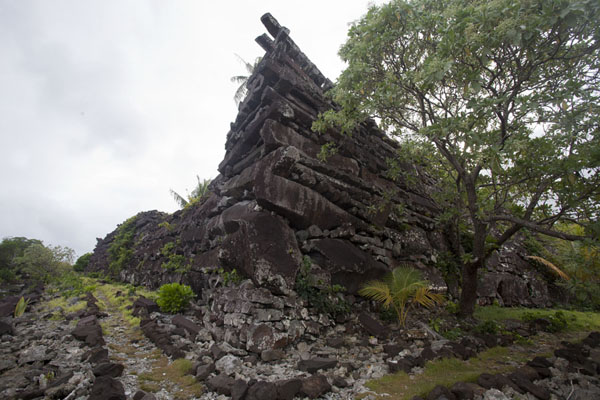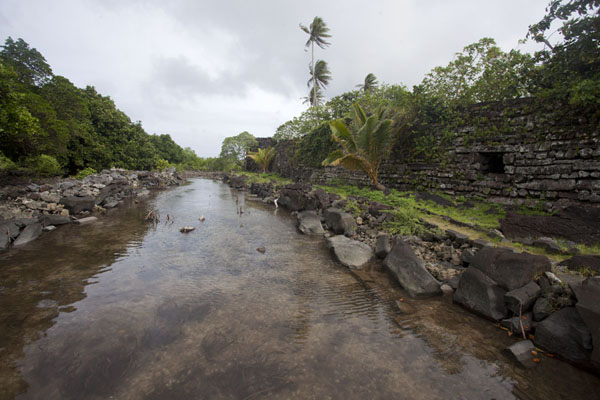The Venice of the Pacific
Nan Madol is one of the most awe-inspiring ‘lost cities’ yet
it only attracts a few hundred visitors each year. Nan Madol was not lost in the sense of its
location being unknown, but it was still ‘lost’ nonetheless. A city being ‘lot’ is not so much about the
place itself; most archaeologists did not unearth cities, they were taken to
them by local guides who knew of their existence, it is the knowledge and
widespread understanding of the place that was lost, not the crumbling walls
themselves.
 |
| The walls of Nan Douwas, the island's fortress |
Nan Madol is built atop a series of small, low lying coral
reefs off Pohnpei, part of Micronesia.
The complex is a remarkable feat of engineering, its stone walls rise
sheer from the ocean. Th entire site
consists of more than 90 artificial islands, inciting historians to dub it ‘Venice
of the Pacific’.
 |
| Canals of Nan Madol |
The city emerged around 1200 years ago and thrived for more than 500 years as a hub of inter-island trade. The Saudelur dynasty that founded the island demanded tributes of staple foods from neighbouring islands. The city embodies the essence of Pacific culture in which the vast ocean as seen as a means of connection rather than the impassable barrier that its size suggests.
The means of erecting the city in such an unlikely location are still unknown, despite oral traditions telling of two brothers levitating the great stones. It is also unclear why the site was abandoned in the mid-17th Century. Rising sea levels are threatening the site and archeologists are scrambling to address the fundamental questions about Nan Madol before it sinks beneath the waves.
 |
| A sinking site |
Comments
Post a Comment